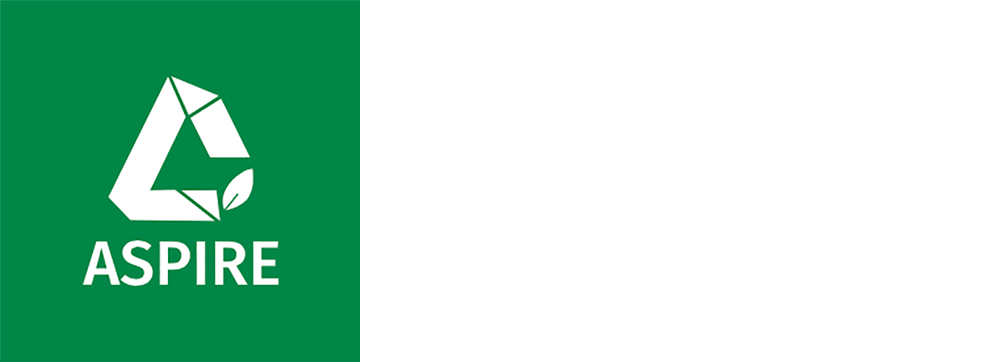As a leader and innovator in the shelf-life packaging industry for over 30 years we’ve always had a keen eye on how the industry is developing.
One of our key strategies has been to establish strong partnerships with suppliers, customers, retailers and industry bodies.
By being active members in our industry we become part of the solution to issues that are being faced in packaging today and are able to bring more sustainable products to market that will also deliver on our commitment to shelf-life and prevention of food waste.

Becoming a member of the Australian Packaging Covenant Organisation (APCO) in July 2019, we formally made a commitment to our sustainability goals.
APCO, which was founded in 1999, is a co-regulatory body, working with government and industry to find solutions to the increasing levels of waste that result from packaging. The Covenant is a document that sets out how governments and the packaging industry share the responsibility for managing the environmental impacts of packaging in Australia, and APCO is the entity in charge of administering and managing the Covenant.
By joining APCO we have become a signatory to the Covenant, meaning that we have committed to working collaboratively with industry, suppliers and customers achieve sustainable packaging outcomes.
APCO intends to have a real impact on the industry with the 2025 National Packaging Targets (NPT), which set out specific, measurable goals for significant improvement. These targets have been revised after reviewing industry progress and are now:
- 100% of packaging to be reusable, recyclable or compostable
- 70% of plastic packaging to be recycled or composted
- 30% average recycled content across all packaging
- Phase out problematic and unnecessary single-use plastic packaging through redesign, innovation or alternative delivery methods
We are currently in phase one of our National Packaging Targets roadmap, which defines our 2022 goals as establishing improved recycling targets, more considered packaging design, sustainable alternatives and minimising waste to landfill. These targets will be continuously measured and adjusted as we make changes to our own practices.
In addition to looking at our own targets we are also working with our customers to help them shape and meet their own 2025 NPTs by collaborating on the development of more sustainable packaging options, providing advice on how to transition to new options that are recyclable or compostable and offering sustainable packaging as the primary option.
Having the APCO framework helps us to meet our own sustainability targets at the same time as helping to effect a more responsible approach as an industry whole.
This page will be kept up to date with new goals and achievements. For full details on APCO and the 2025 NPTs, as well as current impact and improvements, visit the APCO website.

In May 2020 we became a member of The REDCycle Program which is a recovery initiative for post-consumer soft plastic, run by RED Group, a Melbourne-based consulting and recycling organisation.
By partnering with RED Group we are able to shape our product development initiatives in a way that helps our customers choose packaging that consumers can recycle at their local store drop-off bins.
Because plastics are not created equal, not all soft plastics can be recycled this way and we’re working with RED Group to include more of our products as they become available in formats that meet the requirements.
We also work closely with our customers and the team at The REDCycle Program to ensure that any new lines are compliant and clearly show that the packaging can be recycled.
Once recovered, RED Group partners with three Australian owned and run manufacturers to recycle the plastic into new useful products:
- Replas based in Ballarat, Victoria, who convert REDcycle material into a range of recycled products including indoor and outdoor furniture, bollards, and signage.
- Close the Loop, based in Somerton, Victoria, who utilise REDcycle material as a component of high performance recycled asphalt additive for road infrastructure known as Tonerplas
- Plastic Forests, based in Albury, NSW, who use REDcycle material as a component of products such as mini wheel stops and air conditioner mounting blocks (and other products) for the consumer market.
Over time, as more soft plastics are able to be recycled, consumer awareness of the program grows and more companies and governments prioritise procuring products made from recycled rather than virgin plastic, this program will have a significant impact on the amount of plastic that ends up in landfill.

In late 2019 we joined the APSIRE program.
ASPIRE is a certified B Corp and a collaboration between Swinburne University, Data 61 and the CSIRO. It is an online platform that identifies potential business to business resources exchanges.
It’s more than a marketplace for used materials or a passive waste exchange. The system actively suggests business to business collaborations where surplus product or materials would be suitable for use in the creation of new products.
The ASPIRE program helps businesses like ours to reduce our waste costs by diverting these materials from landfill. And, because the program is run in partnership with local councils, it helps the LGAs meet their sustainability and waste targets.
The ASPIRE program also delivers on several of the Sustainable Development Goals (SDGs), including Decent Work and Economic Growth (8), Industry, Innovation and Infrastructure (9), Sustainable Cities and Communities (11), Responsible Consumption and Production (12), Climate Action (13), Partnerships for the Goals (17).
Businesses upload details of materials that they need to dispose of, such as wooden pallets, used packaging or offcuts from the manufacturing process for example. The system will look at the organisations that are part of the program and suggest ways that these waste products can be incorporated into the manufacturing process of new items.
The system also facilitates research work with universities where there are no matches between organisations for the products that are uploaded, or where this is a new product that doesn’t yet have any alternative applications. We are currently in discussions with Monash University to research ways that the wax waste offcuts from our bone-guard product can either be recycled or repurposed.
As the membership of the program continues to grow, we are looking forward to being part of how ASPIRE positively impacts the environment by diverting waste to new products, meeting our environmental targets and saving money.


